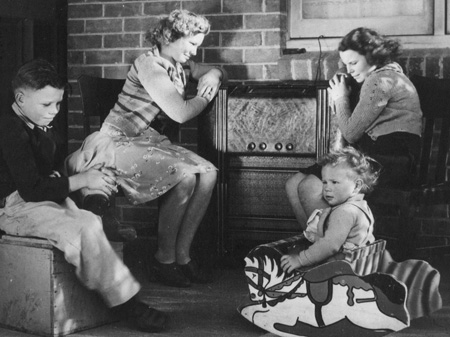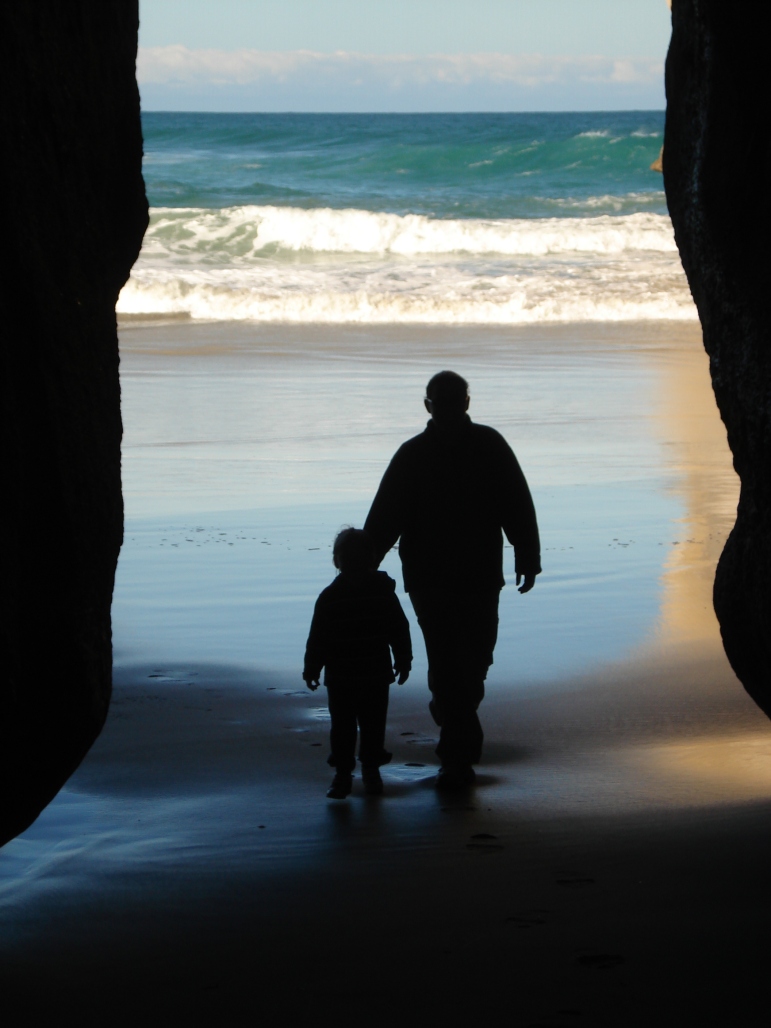
Having just finished reading David R. Slavitt’s, The Seven Deadly Sins and Other Poems, I could not resist posting just one more. Here’s the title piece: ‘The Seven Deadly Sins’ (pp. 51-56), one I delighted in reading a number of times, not least because of its reminiscence with Lewis’ Wormwood-Screwtape correspondence. It also made me wish that the tradition identified a host more deadly sins.
1 pride
Surely, there must be some mistake. I admit
at once that my name is there with the other six,
but after all, if you look at what I am
and what I do, as you should not only for my
sake but your own, and examine in however
perfunctory a fashion before passing
judgment, you will realize that I have about me
a certain dignity, even a moral weight,
and that my contribution over the generations
has been by no means negligible. Only call me
self-respect, or, avoiding false modesty, honor,
and where are we then? In what way are my promptings
sinful? Pride gives men a reason for doing
the right thing even when the world
has gone mad. Without any self-regard,
I suggest that a man is helpless, very likely
depressed, and could at any moment go
native. In this light you must concede
that I am one of the bulwarks of decency: I
embody not only ethical norms but also
standards of good taste in dress and deportment
as well as in art and music without which
civilization would long ago have toppled.
A sin? No, I’m a virtue and have my pride.
2 anger
This is, to say the very least, annoying,
but as you see, I am calm, I am in control.
I should like to point out, however, that the capacity
for anger is morally neutral, and even, sometimes,
a good thing. Does injustice make you angry?
Do cruelty and suffering not engage
your emotions? Intellectual disapproval
is never enough. What you want is your blood to boil,
to seethe with fury at the outrageousness of what
you cannot tolerate, and mankind ought not to permit.
Anger, or call it instead righteous wrath,
is an aspect of the divine, and if we partake
to any degree in that perfection, then we
also feel rage at what goes on around us.
For me to be classed as one of the seven deadly
sins is enough to make anyone angry,
but what’s wrong with that, as long as I maintain
proper decorum? The mental state, the mere
idea of anger cannot be sinful. Any
random thought that crosses your mind . . . Are you held
accountable for that? Then you are all
eternally damned—that is if you still believe
in damnation and those scary Italian pictures
of the last judgment with the shrieking souls falling
on one side of the canvas, and, on the other,
beatific wimps ascending, smiling,
full of the gas of gentle piety.
Do you want to be one of those? Do you? I ask you.
Grow up, accept who you are, and accept me.
3 avarice
I know what you’re about to say: radix
malorum est cupiditas. I admit
that, in Latin, it has a nice ring to it, but let us
be frank with one another and try to imagine
a world in which there wasn’t at least some degree
of cupiditas. The industrial revolution
is erased, the capitalist system in which mankind
is better off, at least in a material way,
than it ever has been since they rooted about
for acorns. Ambition? The desire for betterment,
for one’s self and family too, the eagerness
for respect that society shows, it cannot be
denied, in financial terms, the only language
universally understood . . . You want to chuck
all that? What are you, some kind of left-wing dreamer?
Greed can get out of hand (but then what can’t?)
and be carried sometimes to grotesque excess.
And if that is the case, then Greed isn’t the sin
but Excess—which oddly does not appear on the list.
A roof over your head, a decent bed,
a nice house, or maybe even a little
more than that? A car that’s fun to drive
and you’re on the road to hell? Does that make sense?
Who’s left? You want to go and live on a commune?
Or maybe some simple place in the third world?
Well, maybe you do, but only because it’s cheaper,
you can get good servants for next to nothing, and live
remarkably well on what your portfolio yields.
4 envy
The rest of them envy me, and I admit
that I am pleased by this. It’s always nice
when somebody looks at your ring, your stickpin, your wife,
the emeralds at her neck and on her bosom,
and smiles to hide the grinding of his teeth
as he admits to himself (but you know, too)
that you are the alpha male. The other six
are on the list, but I am the only one
who appears as well in the Ten Commandments, which galls them.
Not that this makes me especially heinous or different,
for who does not feel envy when window-shopping
on Madison in the sixties? He’s blind, or dead,
or he has so much, himself, that he only knows
envy from the receiving end, for it
is a two-way street. You crave what this man has,
or how much he knows, or how good he looks, or his youth
or health, or his success, or his children’s . . . Of course,
you do, and this is a goad to work harder.
Take a longer view, and all the improvements
of the past five hundred years, you must admit,
resulted from my prompting. The labor movement?
Universal suffrage? The fundamental
belief in equal justice? They’re all my doing,
and answers to the envy that first informed
those men and women that they were being treated
like beasts, like dirt. Why then does my name appear
on lists of prohibitions and taboos?
Precisely for that reason—that I disturb
the social order and make the nobles quake
in their huge dining rooms with the centerpieces
of silver and gold, the crystal chandeliers,
the flatware, the fine china, and all those footmen.
They count on it that wealth arouses envy
and hope that the peasants, believing what they’ve been told,
won’t riot (at least not yet), for that would be sinful.
5 lust
I have an affirmative defense. I am not only not
a sin but the subject of Jehovah’s first commandment:
Be fruitful and multiply. How else does that happen,
do you suppose, and what demented church father
loathing the body, loathing himself, dreamed up
the perverse idea that lust was, in itself,
a bad thing? The Greeks, who were civilized—
at least for a while—thought of me as a god
and accorded me respect. What man or woman
can look at a painting or sculpture, never mind of a nude
but even a pot of flowers, a landscape, a still life,
without lust, or say an appreciation
of the sensuous forms the painter has on offer,
and not respond at all? I should not have been put here
on this ridiculous list, and whoever thinks
I deserve such a calumny ought to see
a shrink. People can, I concede, misuse
my gift, but that’s their business. Love, children,
the survival of the species have their costs.
I invite you to take a walk with me in the springtime
when the girls first reappear in their summer dresses
and tell me it is not good to be alive.
6 gluttony
What, I ask you, distinguishes me from hunger
that can’t be a sin, except in the mind of some
self-abusing monk in his cell, despising
whatever is not pure spirit? Men are bodies,
and bodies need to be fed. But to answer the question,
gluttony is excess, some unattractive
fat rich man whom it’s easy to laugh at.
There are, nevertheless, a few words
of explanation (not perhaps a defense
but at least an extenuation) for the deeper
question is the nature of his hunger
that he knows is unhealthy. His doctor, at every visit,
talks of his sleep apnea, his arthritis,
and his A1C hemoglobin that’s high,
and the poor fellow would cut back if he could.
He resolves to do better, and tries, and fails.
That hunger of his isn’t for food but for love.
He is sad, or beyond sad, and in his heartbreak
he needs to be consoled and he dimly remembers—
or cannot quite remember what his body
keeps, still, in its deepest recesses—lying
on his mother’s breast, snug, warm, loved,
and being suckled, and he would give the world
to go back to that, but he can’t, and instead he gorges,
stuffs himself, and never is satisfied.
But is that a moral defect? Or is it the world,
perilous and unfriendly as it is,
that deserves reproof? Show him a little compassion,
the understanding and love that he hungers for.
7 sloth
Not laziness, no, it’s bigger than that. The older
name was better, Accidie, which suggests
a larger fatigue, not only of flesh but of spirit,
a failure, at last, of faith, and that indeed
would be a sin, that is if you believed
in sin. But my people don’t. Perhaps they used to,
but now they get by on pills, the Lexapro
and maybe a little Wellbutrin. And their despair
may not indicate madness but sanity,
for they have seen through to the dismal truth of things—
that nothing lasts, that the dreams of their youth were merely
dreams. They grow up and age, and the body betrays,
and the mind, as it starts to consider the emptiness
that beckons, resigns itself. The childhood faith
they used to have seems quaint, or a bad joke.
There is no afterlife. There is no life.
 From the reading chair: Biography as Theology: How Life Stories Can Remake Today’s Theology by James Wm. McClendon; The Concentration Camp and Other Stories by Geoffrey C. Bingham; The End of Suffering: Finding Purpose in Pain by Scott Cairns [reviewed here]; Pastoral Theology in the Classical Tradition by Andrew Purves; Poems for Gardeners edited by Germaine Greer; No Rusty Swords: Letters, Lectures, and Notes from the Collected Works by Dietrich Bonhoeffer.
From the reading chair: Biography as Theology: How Life Stories Can Remake Today’s Theology by James Wm. McClendon; The Concentration Camp and Other Stories by Geoffrey C. Bingham; The End of Suffering: Finding Purpose in Pain by Scott Cairns [reviewed here]; Pastoral Theology in the Classical Tradition by Andrew Purves; Poems for Gardeners edited by Germaine Greer; No Rusty Swords: Letters, Lectures, and Notes from the Collected Works by Dietrich Bonhoeffer.


















